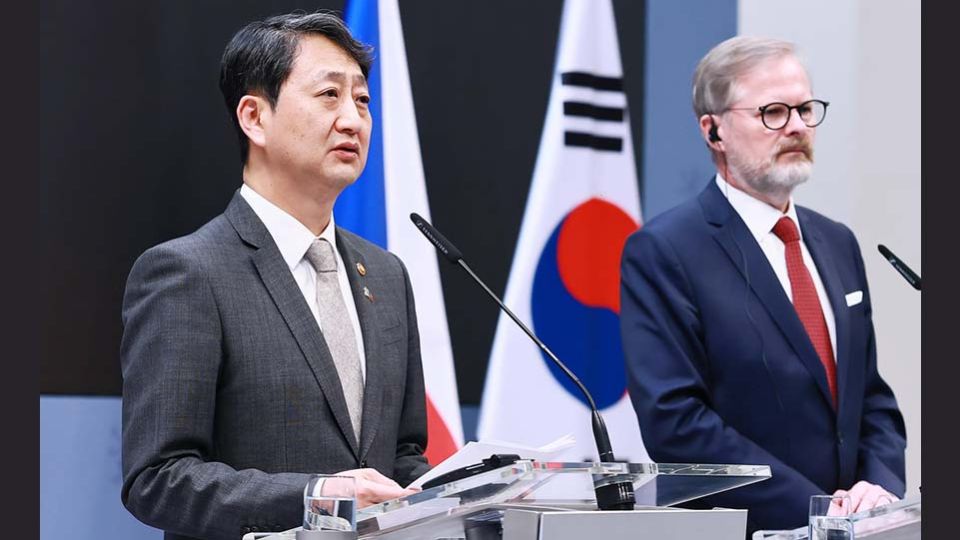May 14, 2025
SEOUL – A landmark $18 billion nuclear power plant deal between South Korea and the Czech Republic has come under renewed pressure after the European Union raised objections to the project, according to industry sources on Tuesday.
Korea Hydro & Nuclear Power and a subsidiary of Czech state-run utility CEZ were set to sign a contract last week for the construction of two 1,055-megawatt nuclear reactors at the Dukovany Nuclear Power Plant. However, the signing was suspended after a regional court granted a preliminary injunction at the request of France’s EDF, the losing bidder in the tender.
On Monday, local media outlet Euractiv reported that French European Commissioner Stephane Sejourne had sent a letter to the Czech Industry and Trade Ministry on May 2 – the same day EDF filed for the injunction — urging the government to halt the nuclear deal with Korea. The Brno Regional Court issued the injunction on May 6, effectively canceling the signing ceremony scheduled for the following day.
In the letter, Sejourne noted the Commission has already started examining whether KHNP received any state aid that could be considered illegal under the EU Foreign Subsidy Regulation when it won the tender to build the two reactors. The Czech Republic should not sign the deal until the investigation is complete, the commissioner said.
“In this regard, the duty of sincere cooperation requires Czechia to avoid any situation that would irreversibly run counter to concerns set out in this letter and that could give rise to irreversible effects that prevent the FSR from being applied effectively,” Sejourne wrote, using the Czech government’s preferred name for the country.
Sejourne’s statement repeats the EDF’s claim that KHNP may have received government subsidies, potentially violating EU competition rules. The French company has also argued that KHNP’s fixed-price offer is unrealistically low and financially unsustainable. Citing these reasons, the EDF has continued to challenge the Czech Republic’s selection of KHNP since its own bid fell through last July.
Later on Monday, Commission spokesperson Thomas Regnier clarified that Sejourne’s letter was “absolutely not a request to put things on hold.”
“Here it’s not, again, a French commissioner defending French interests. On the contrary, it’s a (European Commission) college member enforcing the legislation and engaging with the Czech authorities to protect our single market,” the spokesperson added.
Over the allegation, KHNP reaffirmed Tuesday that it did not violate the EU’s FSR, rejecting the French side’s claims that it received government subsidies.
“We have participated in the bidding process with sincerity and responsibility, and we will continue to do our utmost to ensure the successful execution of the project, based on trust with the Czech government and the contracting authority,” the company said Tuesday.
KHNP has previously refuted EDF’s claim, noting it received no government subsidies and that the Czech nuclear tender began in March 2022, prior to the regulation’s adoption, making it exempt from the FSR’s scope.
Elektrarna Dukovany II, the CEZ subsidiary overseeing the reactor project, issued a statement defending the tender process and urged EDF to immediately disclose the offer it submitted if it truly believes it was more competitive than that from KHNP.
EDU II also said it is ready to “seek full compensation for damages” caused by delays and to protect shareholder value against litigation.
Regarding the claims of illegal subsidies, EDU II labeled it “speculation by the unsuccessful bidder,” adding that “the unsuccessful bidder is not interested in winning the tender, but in ensuring that no nuclear power plant is built here in the Czech Republic at all.”
The CEZ also said it will file a motion this week to have the injunction lifted by the Supreme Administrative Court and to proceed with the deal.


